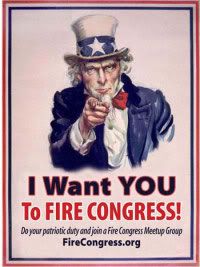Results 1 to 1 of 1
Thread Information
Users Browsing this Thread
There are currently 1 users browsing this thread. (0 members and 1 guests)
-
01-07-2010, 11:40 PM #1
Forgotten Influences of the Founders
Forgotten Influences of the Founders | Print | E-mail
Written by Joe Wolverton, II
Thursday, 24 December 2009 15:00
Our own Founding Fathers were convinced, and history has proven them prescient, that they were building a new and everlasting republic that would do what other republics of the ancient world had failed to do: survive the effects of the maladies of self-government and bequeath to the subsequent generations of Americans a sound and stable republic â if they could keep it.
For the ingredients necessary to brew the right antidote to the poisons of democracy and tyranny, the Founders drew from several sources. From the recent past, there was the English legacy of the right of the people to the enjoyment of certain unalienable rights such as trial by jury and due process; there was the legacy of ancient Greece and Rome that citizens are and by rights should be entrusted with the power of self-determination; and there was the faculty of renown continental thinkers and jurists who propounded the principle of natural law and its blessings and burdens better than any theorists before or since. The Founders wisely chose from among the best and brightest, and combined their words and deeds into a potent concoction that they then reduced down with the fire of revolution into a remedy that, despite its base of history, was uniquely American.
There are many illustrious names whose books and treatises were read and assimilated by our Founding Fathers. Some of those influences are still well known, and their names and their ideas (or at least a vague notion of their ideas) are still heard in lectures on government (Locke and Montesquieu, for example). There are others, however, whose identity and influence are now largely lost to Americans in general, and the books and papers that were once always at hand for Madison, Hamilton, Jefferson, et al., are now to be found only in dusty âSpecial Collectionsâ



 LinkBack URL
LinkBack URL About LinkBacks
About LinkBacks




 Reply With Quote
Reply With Quote

GALLUP POLL: Immigration the most pressing issue in America for...
05-03-2024, 11:30 PM in General Discussion